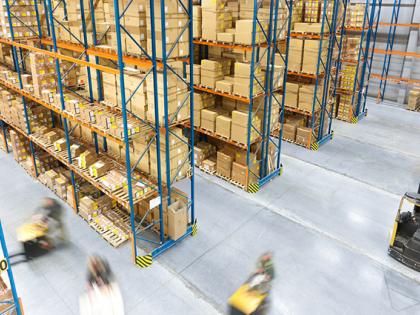What’s Behind Food Production’s Interest in Sale-leasebacks
The sector is tapping the funding source as it eyes further growth, writes W. P. Carey’s Pasanen
The food production sector has been a significant source of recent deal flow for W. P. Carey – in 2020 we completed five investments in the sector totaling $210 million. In part, this is due to the overall stability of the industry. Even amid a global pandemic, food is essential, and most food companies have continued to perform well – particularly those with a diversified customer base. As a result, many food production companies are seeking capital to keep up with demand and discovering the opportunities a sale-leaseback presents – the ability to quickly unlock the capital tied up in their commercial real estate to reinvest into their core business.
In a sale-leaseback, a company sells its real estate to an investor like W. P. Carey for cash and simultaneously enters into a long-term lease, while maintaining full operational control of the facility. For food production companies, a sale-leaseback can be a critical tool to increase cash flows and support long-term growth. Here’s how:
Lock in low rates with a long-term lease and recapitalize balance sheet
The COVID-19 pandemic forced many companies to take a hard look at their balance sheets and find opportunities to recapitalize and add working capital. For food production companies that aren’t in the business of owning real estate, those real estate assets can be a significant weight on their balance sheets. A sale-leaseback, particularly in the current low rate environment, can enable them to monetize these assets at a cost that creates a positive arbitrage, given what the capital can earn when those proceeds are invested in their core business. In October, we completed a $34 million sale-leaseback with a food production company in the Midwest where proceeds were used both to pay down debt and add working capital to the balance sheet.
In addition, while interest rates currently remain at historic lows, they are expected to rise in the years to come. By pursuing a sale-leaseback and signing a long-term lease now, companies can lock in attractive rental rates for 15 to 30 years.
Unlock capital to support new acquisitions and future growth
Food production has remained one of the most resilient sectors during the pandemic, with some companies even benefiting from the trends that have emerged – including a greater demand for e-commerce and at-home grocery deliveries. To capitalize on these trends, food production companies are looking to shore up capital for new acquisitions that will support their future growth. Sale-leasebacks are a great method to supply companies with this dry powder, enabling them to act quickly on opportunities and take advantage of the market.
Proceeds can also be used for other growth initiatives, including investments in new technology or equipment that will help increase efficiency, improve delivery capabilities and help meet growing demand. Earlier this year, we completed a $75 million sale-leaseback of two packing, production and distribution facilities in California with a leading grower-packer of seasonal, high-value summer fruit in which the proceeds were used to help fund growth initiatives for the company.
Secure a long-term capital partner
If companies choose the right buyer in a sale-leaseback, not only can they unlock immediate capital, but they can also secure a long-term partner to support ongoing growth and real estate needs. These can be add-on acquisitions, build-to-suits of new facilities or expansions of existing facilities. Particularly as demand for e-commerce is expected to increase, having a long-term capital partner can be a critical component to a company’s growth strategy and give them an edge against competitors.
We completed several projects with our existing tenants in the food production sector last year to help support their growth. In June, we completed a $75 million build-to-suit of a brand-new, state-of-the-art food production facility in San Antonio, Texas with our existing tenant, Cuisine Solutions, the largest manufacturer of sous vide food. The facility enabled Cuisine to address growing demand and expanding operations. In addition, we completed a warehouse expansion in an accelerated timeframe in Portugal with our tenant, Sonae MC, a leading Portuguese food retailer, to help them meet rapidly growing demand as a result of the pandemic.
In closing
As food production companies continue to recognize post-pandemic opportunities for growth and enhanced profitability, demand for attractively priced sale-leaseback capital as a long-term source of funding will increase. The liquidity provided by a sale-leaseback can support a range of corporate initiatives, including balance sheet recapitalization, paying down debt and shoring up working capital for future growth.
Thoughtful lease structuring along with timely execution are crucial factors requiring an established sale-leaseback partner with recognized experience, relationships and reputation. In addition, it’s critical to find a partner with a long-term outlook to help fund both current and future needs. At W. P. Carey, we’re a long-term investor and endeavor to support our tenants throughout the duration of their leases so they have the capital and real estate they need to remain successful. If our tenants do well, we do well – it’s a symbiotic relationship.

You May Also Like:
